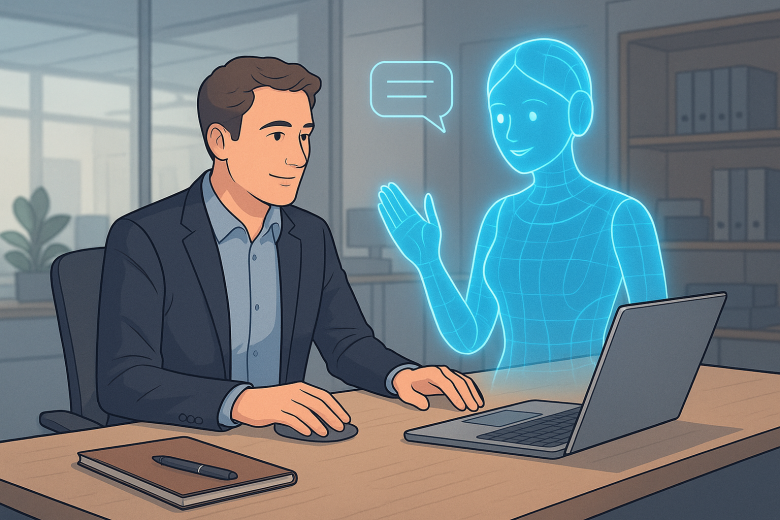The AI Jobs Myth: Why 2025 is the Year of Augmentation, Not Apocalypse
The narrative that Artificial Intelligence is a job-killing monster is one of the biggest myths of 2025. While headlines continue to scream about mass displacement, the reality—especially inside large enterprises—tells a story of transformation, augmentation, and a massive boom in new career paths.
AI isn’t here to replace the human worker; it’s here to redefine what human work means.
This year, the focus has shifted from automation of entire roles to augmentation of tasks, freeing professionals to focus on the strategic, creative, and human-centric aspects of their jobs.
The Reality: New Roles Emerge from the Ashes of Automation
While repetitive and easily codified tasks (like data entry or basic routing) face automation pressure, this efficiency fuels the creation of high-value, high-skill roles that didn’t exist five years ago.
| Sector | Emerging AI Job Role | Description |
|---|---|---|
| Technology / Software | AI Ethics & Governance Specialist | Ensures AI systems are fair, transparent, and compliant. |
| Generative AI | Prompt Engineer / AI Interaction Designer | Crafts precise instructions for AI tools like ChatGPT and Copilot. |
| Business / Strategy | AI Product Manager | Bridges business needs and technical AI development. |
| Data / Analytics | MLOps Engineer | Manages deployment and monitoring of AI models in production. |
According to leading global analysts, AI is expected to create more jobs than it eliminates by 2030. The real challenge isn’t unemployment—it’s skills misalignment.
The Enterprise Response: Investing Millions in Upskilling
Forward-thinking organisations are choosing training over termination. They’re transforming existing workforces into AI-augmented professionals.
-
Financial Services:
Banks and insurance companies are retraining analysts into AI-Augmented Analysts capable of using machine learning to process billions of data points in seconds. Human experts now focus on strategy, relationships, and oversight. -
Consulting & Professional Services:
Consultancies are embedding AI into every level of employee development—creating AI Solution Architects who can design intelligent business systems. You can start building these skills through Microsoft Azure AI Fundamentals (AI-900). -
Cloud Providers:
Cloud giants like Microsoft and AWS are rolling out free AI certifications. Courses such as Azure AI Engineer (AI-102) and AWS Cloud Practitioner empower professionals to build and deploy AI systems directly in the cloud.
AI Fluency Is the New Literacy
AI is not a substitute for human intelligence—it’s an amplifier. In 2025, job security depends less on what you already know and more on how quickly you can adapt and learn alongside technology.
Core skills shaping the new AI economy include:
-
Critical thinking and problem-solving
-
Emotional intelligence and creativity
-
Ethical reasoning
-
AI fluency—the ability to work with AI tools like Copilot, ChatGPT, and Azure OpenAI
To futureproof your career, start exploring pathways like:
Conclusion
The AI revolution is not about replacement—it’s about redefinition. Work is evolving, not evaporating. Those who learn to partner with AI, leveraging its analytical and creative strengths, will lead the transformation.
Rather than fearing automation, now is the time to invest in your own augmentation—to become the kind of professional who thrives in an AI-powered world.
Next Steps
-
Explore AI and Data courses at Robust IT Training.
-
Attend our weekly AI & Data webinar (every Tuesday, 6:15 PM) at ai-webinar.co.uk.
-
Start your journey with the beginner-friendly Microsoft Azure AI Fundamentals (AI-900).
